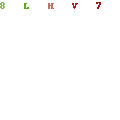Affiliate Sales Tracking
Tracking your sales, along with choosing appropriate affiliates and maintaining your website(s), is one of the key elements of being an affiliate. Here is some important information about how affiliate sales are tracked.
The Importance of Tracking
If you realize that accurate tracking is the only means to insure that you will get fairly paid as an affiliate, you'll understand the importance of the topic. It is imperative to make sure to monitor tracking to catch glitches on the merchant's end or arising from fraud. In a more positive way, tracking also gives you feedback on your marketing campaigns and their effectiveness, allowing you to draw conclusions for future changes, implementations, and updates.
It's Not Just Cookies Anymore
The variety of tracking software for affiliate programs has grown a great deal since the idea of affiliate programs was conceived. Some merchants may use specialized in-house software, rely on a web-based software service, or work through an affiliate network. The technical tracking (following customers and collecting their behaviors) is currently done by a number of systems, including the following:
• Cookie tracking
• Database – data capture
• Database Record Match Tracking
• Pixel cookie with backup IP
• Pixel post
• Self-Replicated Pages
• Simple Direct URL Links
• Sub Domain Tracking
• URL Query String Tracking
The report data that you will need from the tracking system will depend on the contract you have and how your commission is being paid. Whichever type of tracking is being used, note the items on the list below that are integral to your analysis of your site's performance, and make sure they're included in the tracking report so you have the statistics you need.
• Conversions (actions generated by visitors) • Number of clicks
• CPA (Cost Per Action) • Page views for each visitor
• CPM/CPT (Cost per thousand clicks) • Return Days (time during which an affiliate gets credit for a sale)
• CR (Conversion Ratio) • Total of impressions (ads)
• CPS (Cost Per Sale) • Total page views
• CTR (Click-Through-Rate) • Unique visitors to your site
• EPC (Earnings Per one hundred Clicks)
Watching Out for Fraud
Good, thorough tracking software and reports can help avoid any type of fraud. Though no tracking method is foolproof (this is still a young industry), and this can make it difficult to figure out what "best practice" is, let alone what the next scam will be. But in spite of this there are certain ways in which the record of your transactions can be lost, as well as ways of attempting to gain compensation as an affiliate that are wrong, so watch out for any evidence that points to these:
• Blockers—People who come to your site may be unaware that they are robbing you of credit when their spyware or security system deletes or refuses the cookies that your merchant's tracking this article has all rights reserved and is copyright by 100 Best software wants to place on their site. Many people are suspicious of cookies, and try to protect themselves from legitimate dangers by blocking them. In addition, some browsers offer adblockers, which may serve a legitimate role for a customer. For example, pretty much everyone would agree that someone who could have a seizure from blinking, spinning ads is far better blocking those ads. Other people, without an urgent medical issue, simply find them utterly annoying. The net result is that people may be seeing your sight, but not the advertisements you have posted, particularly if they're pop-ups.
• Cookie Overwriting—Various means, including a merchant's newsletter mailing, have been known to purposely or accidentally overwritten a cookie from an affiliate site visit so that the affiliate doesn't get credit for a purchase.
• Coupon Scraping—This is fraud that one affiliate practices on another. It involves the theft of coupons that are not tagged for the particular affiliate's authorized site, and then receiving credit for their use on an unauthorized site.
• Cookie-stuffing—This is creating a method to deceive the tracking system to believe that a link has been clicked even though it hasn't.
• Parasites—This involves one affiliate stealing another's traffic by substituting their own ID for the real affiliate's identification in links, leading to the thief being credited for the real affiliate's sales.
Sunday, August 17, 2008
Subscribe to:
Post Comments (Atom)
























No comments:
Post a Comment